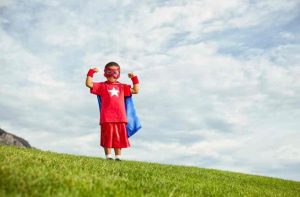
Members of our advocacy team recently attended the Mackillop Institute’s Power to Kids Program – an online training program that aims to equip carers to prevent and respond to sexual exploitation, harmful sexual behaviours and dating violence experienced by young people in care, and especially in residential care.
The Power to Kids program is being offered at no cost to all residential care providers in Australia until the end of this year. The program looks to build carers’ skills to give them the confidence to have ‘brave conversations’ with children and young people about sexual health, relationships and safety, and to increase their ability to prevent, identify and intervene early when they see indications of abuse.
Sadly, a series of damning reports from the ABC has highlighted concerns about the sexual safety of young people in care across Australia but these concerns are not new. Back in 2008, the South Australian Mullighan Inquiry made many recommendations, including giving the Guardian for Children and Young People additional functions specifically to monitor and advocate for any child or young person who has made a disclosure of sexual abuse while in care.
The Mackillop program was developed in partnership with Melbourne University and has been trialled in Victoria over 4 years, with a positive impact on increasing the sexual health and safety of young people, a decrease in the frequency and length of time young people were missing from their placement and an increase in the confidence and skills of carers.
One Victorian carer in the program has described the result of respectfully engaging a young person in conversations about her sexual safety over time, using language that opened conversations and didn’t trigger the young person’s flight or fight response: “watching [her] transformation was amazing. This young person is now transitioning into independent living, and we can be excited for her, knowing that when we send her off, we send her off safely… We have armed her with the tools to support her not to be sexually exploited in the future.”
The Power to Kids online training consists of two one-hour independent online activities, following by two full-day live training sessions. Carers learn valuable strategies and skills to use within (and beyond) their residential care houses, such as:
- recognising and responding to harmful sexual behaviours
- educating children about respectful relationships and sexual health and safety
- working collaboratively with external agencies to disrupt child sexual exploitation
- supporting young people to be empowered to keep themselves safe
- advocacy and therapeutic treatment for harmful sexual behaviours.
OGCYP Senior Advocate, Courtney Mostert, who recently attended the training, described it as “really worthwhile and rich in information and resources”.
“The training equips you to understand and identify the different indicators of harmful sexual behaviour, child sexual exploitation and dating violence. It empowers those working with young people to have ‘brave conversations’ – conversations that then enable young people to grow their knowledge and understanding of sexual health and safety issues,” Courtney said.
“Above all, the training drives home how important it is to build strong relationships with young people, because safe relationships help protect young people from harmful sexual behaviour, child sexual exploitation, and dating violence. It was fantastic hearing real life examples of how Power to Kids is already making a difference to the sexual safety of young people in residential care across Australia.”
“I look forward to seeing how the roll out progresses in South Australia and how many different services and agencies can work together to prevent the sexual exploitation of young people in care,” Courtney said.
If your agency is interested in accessing this free online training, register at the MacKillop Institute’s website.
